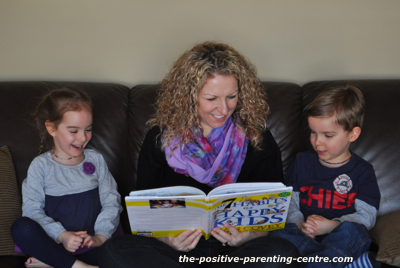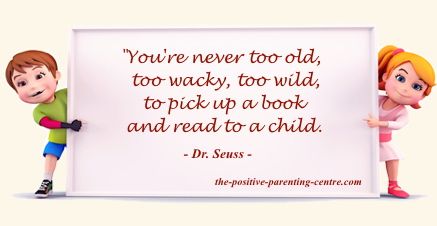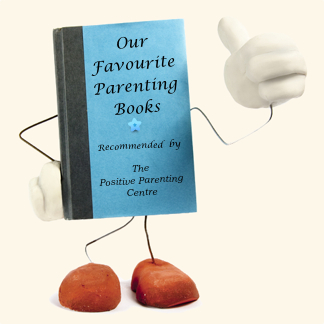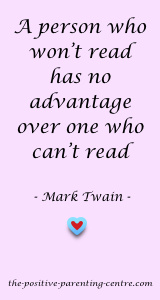Reading to Children
"The Gift that Keeps on Giving"
By Stephen Walton
Why is reading to your children so important?
The intention of this article is not only to promote the benefits in reading to children but in motivating and inspiring you as a parent to read, read, read and then "Read Some More" to your children.
Why is that?
Reading aloud to children is the single most influential tool a parent can use in the early and critical development of a child's literacy and communication skills.
You expose your child to new and wonderful experiences opening their mind to a larger and exciting world. You stimulate your child's imagination encouraging them to form a positive association with books.

Outside of the parental responsibility in providing security, respect, unconditional love, kindness, and encouragement in the development of positive self-esteem, the next best gift you can give to your child is to…
..."Sow the Seed of Reading Desire."
It is the gift that
keeps on giving, providing a lifetime of joy through education,
pleasure, motivation and inspirational reading.
"You may have tangible wealth untold; caskets of jewels and coffers of gold.
Richer than I you can never be... I had a mother who read to me."
- Strickland Gillian -
__________________________
Developing a Thirst for Knowledge
A fundamental principle of positive parenting is to encourage and inspire your child to develop a love of reading that will foster a thirst for knowledge. This is done by slowly and repetitively reading fun, rhyming and interesting stories that will engage your child and entice them with a desire for more.
"Education is not the filling of a bucket, but the lighting of a fire"
- William Butler Yeast -
It is crucial to realize the intent here is not to attempt to create your own little "Genius Child," on the contrary, it is to encourage reading in a fun-stress free and loving manner.
I cannot stress enough that reading must be viewed by your child as fun, positive, engaging and enjoyable in order to encourage them to love & desire reading. If your child perceives that your intent is to make them learn they will be discouraged and put on the brakes, and you will do more harm than good.
Remember, the art of listening is acquired gradually. It must be progressed slowly and when you feel your child is ready, changing up the subject matter ignites new curiosity about the world around them, expanding their range of interest while creating a thirst for more.
In his informative and highly recommended book "The Read Aloud Handbook" (now in its seventh and last addition), the author Jim Trelease points out that

reading is the heart of education, and the knowledge of almost every subject flows from reading.
Think about that for a moment… anything and everything about this entire universe can be found in a book somewhere.
"The world is at your child's fingertips"
"Few children learn to love books by themselves. Someone has to lure them into the wonderful world of the written word; someone has to show them the way."
- Orville Prescott -
As parents we know reading to children is a wonderful opportunity to cuddle and bond with them. But the advantages are far greater than that, following are some other benefits you can expect to gain.
7 Additional Benefits
of Reading to Children
1).The Development of Communication Skills:
We don't normally equate listening to speaking, however when reading aloud to children (particularly with infants) they are subconsciously learning to form the words that will eventually be expressed in their own time.
Your young child will often observe your lips as you are reading. They are literally watching your formation of the words as you speak. They begin to see a connection between the printed word and the spoken word encouraging a desire to mimic your voice.
When they eventually begin to speak you will often notice the words are expressed in the same tone and manner as they were first observed.
The more you read to them the stronger the connection between the auditory and spoken word, eventually leading to improved understanding and meaning of the words.
Naturally with a healthy vocabulary as your child ages he/she will be more prepared to express themselves in greater communicative form.
2).Contributes to Increased Vocabulary:
If you're like most parents, when your child first begins to speak you often ask yourself "Where on earth did they hear those words?" Starting off with a few simple words and before you know it they're using full sentences.
Of course much of their vocabulary is built from general conversation, however when your child is exposed to words and sentence structure outside of normal speaking habits they internalize a richer selection of words and sentence patterns that ultimately enhance their literacy development.
The larger their mental storehouse of words the better their comprehension skills are developed.
3).Improves Listening Skills, Memory and Attention Span.
When stories are interesting or exciting for your child they focus with anticipation on what is about to happen next. This is a natural way to strengthen their level of concentration and attention span.
When reading aloud to children you are able to guide their listening habits by stopping periodically to ask questions about the story or have them sum it up at the end. This provides a wonderful opportunity to strengthen memory recall as well.
4).Profoundly Increases their Background Knowledge.
The more variety of books you read to your child the more information and understanding they gain of the world around them.
When your child begins to read on their own and enters the school years, this wealth of background knowledge cultivates a proficient level of comprehension, giving your child a huge academic advantage.
5).Assists in Teaching Virtues to Your Child
Many of the virtues that are so important in life can be introduced to your child by reading to them at an early age. These precious virtues should be planted early in your child's mind and heart.
Simple stories encompassing such virtues as Love, compassion, respect, kindness, empathy, forgiveness, patience and courage all ingrain positive values in your child.
6).Heightens Your Child's Imagination
Reading eventually gives your child a general understanding of the difference between fact and fiction (reality from fantasy).
When reading aloud to children you should try and use lots of vocal and facial expression, adjust your voice level and tone to emphasize the characters in the story. This helps in creating a visual important in developing your child's imagination.
7).Supports Cognitive Development
There are many cognitive development skills that are enhanced by reading aloud to your child.
Cognitive Skills such as:
1..The understanding and development of word formation and order, assisting your child in the expression of thought.
2.. Since stories transform through beginning, middle to end your child develops a general understanding of sequence of events. This assists in development of multi-step directions.
3...Simple picture books teach your child about colours, shapes, textures, numbers and the alphabet, among other things, that help develop your child's cognitive skills.
4...With appropriately selected stories you are able to socially prepare your child for kindergarten. Many books are written to assist young children with impulse control, emotional regulation, and even simple problem solving to jumpstart their social cognition skills.

What is Your Child's Favourite Book?
We would love to hear from you...
To share your personal book review with other visitors, please visit, and fill out the submission form at "My Child's Favourite Book" page.
When Should You
Stop reading to Children?
Jim Trelease points out in "The Read Aloud Handbook" many parents have the mistaken assumption that reading aloud to their children should stop once they enter the school years and begin reading on their own.
He makes a compelling case for the benefits of reading aloud to children as they grow older. He points out that children listen on a much higher level than they read.
He goes on to explain that children can hear and understand stories that are more complicated and more interesting than what they could read on their own.
A first-grader for example can enjoy books written on a fourth-grade level, and fifth-graders can enjoy books written on a seventh-grade level, (contingent upon social level and subject matter of the books).
Remember, your intent is to naturally encourage your children to want to read. The only way for your child to develop a thirst for knowledge through reading is by making it fun, relaxing, and enjoyable…. Do not force it upon them.
"So it is with children who learn to read fluently and well: They begin to take flight into whole new worlds as effortlessly as young birds take to the sky."
- William James -
Ways to Make
Reading to Children Fun
The government of Ontario has put together 10 wonderful tips on ways
to make reading fun as well as ideas to help your child with reading
from kindergarten to grade six.
Here are 3 of their Most Important Reminders
- Read Everyday
- Read Together
- Make Reading Fun
Click the link below to read their "10 Tips"
|
The For further ideas on awakening your child's imagination and improving
their language skills, pick up a copy of Jim Treleases book. |
USA CANADA |
Affiliate Disclosure
Certain links to products on our site are affiliate links, of which we may earn a small commission on the purchase you make.
If you find our site interesting and informative, we would love for you to
"Like or Share" us on Facebook
Visit our Facebook page on the link below
Subscribe to our
Periodic Newsletter








